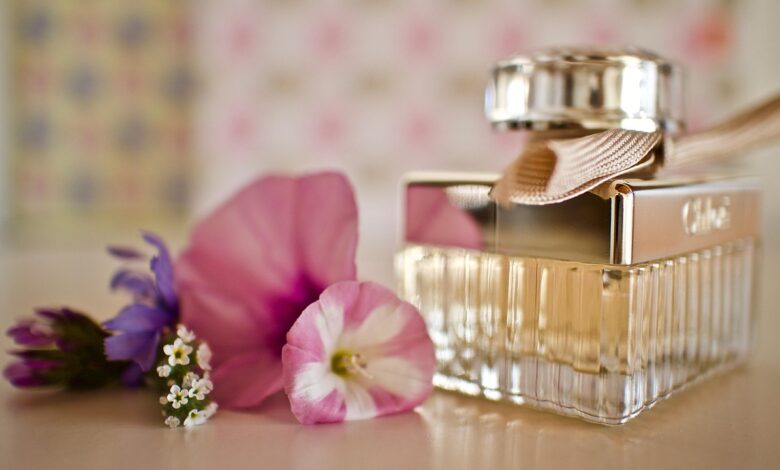5 Common Perfume Myths You Still Believe

Perfume is steeped in allure and mystery, but it’s also surrounded by misconceptions that can mislead even the most devoted fragrance enthusiasts. These myths, passed down through generations or fueled by outdated advice, often shape how we choose and wear scents, limiting our ability to fully embrace their magic. With perfume subscription services making it easier to explore fragrances, now is the perfect time to debunk these falsehoods and approach perfume with fresh insight. This article uncovers five common perfume myths you might still believe and reveals the truth to enhance your fragrance journey.
Myth 1: Perfume Lasts Forever
The Truth About Shelf Life
Many believe that a bottle of perfume will remain pristine indefinitely, but fragrances have a finite shelf life. Once opened, exposure to air, light, and heat begins to degrade the delicate balance of aromatic oils, causing the scent to weaken or change over time. Most perfumes last about three to five years, though unopened bottles stored properly—in a cool, dark place—can last longer. Signs of spoilage include a sour smell or discoloration.
A perfume subscription service helps you avoid this issue by delivering smaller, travel-sized vials that you can use up quickly. This ensures you’re always experiencing fragrances at their peak freshness, without worrying about a large bottle going stale.
Myth 2: Expensive Perfumes Are Always Better
Quality Beyond Price
The notion that only high-priced perfumes are worth wearing is a pervasive myth. While luxury brands often use premium ingredients, many affordable or niche fragrances offer comparable quality and complexity. Factors like note composition, concentration (eau de parfum vs. eau de toilette), and how a scent interacts with your skin matter more than the price tag. A $30 fragrance that suits your chemistry can outshine a $300 one that doesn’t.
Subscription services democratize access to both high-end and niche perfumes, letting you test a range of options without breaking the bank. With a perfume subscription, you can discover hidden gems that rival luxury scents in quality and impact.
Myth 3: Perfume Should Be Rubbed Into the Skin
Why Rubbing Harms Your Scent
A common habit is to spritz perfume on your wrists and rub them together, believing this helps the scent “set.” In reality, rubbing disrupts the fragrance’s molecular structure, crushing its top notes and accelerating evaporation. This can make the perfume smell flatter or fade faster. Instead, spray perfume on pulse points—like wrists, neck, or behind ears—and let it dry naturally to preserve its intended progression from top to base notes.
Myth 4: You Should Stick to One Signature Scent
The Freedom of Variety
The idea that you must commit to a single “signature” scent for life is outdated. While a go-to fragrance can be iconic, modern perfume culture celebrates versatility. Rotating scents based on mood, season, or occasion—think fresh citrus for summer or warm amber for winter—reflects a dynamic approach to self-expression. Switching fragrances also prevents olfactory fatigue, where your nose becomes desensitized to a scent you wear daily.
A perfume subscription empowers this flexibility, delivering a variety of fragrances to suit different moments. These services encourage you to build a scent wardrobe, ensuring you always have the perfect perfume for any vibe or setting.
Myth 5: Perfume Only Smells Good on Women
The Rise of Unisex Fragrances
The myth that perfume is inherently feminine persists, but fragrance has no gender. Historically, men and women alike used scents, from ancient Egyptian oils to Renaissance colognes. Today, unisex fragrances with notes like vetiver, oud, or marine accords dominate the market, appealing to anyone who loves a great scent. Perfume is about personal connection, not societal labels, and modern perfumers craft scents to evoke emotions, not conform to outdated stereotypes.
Subscription services highlight this inclusivity by offering gender-neutral and niche fragrances that challenge traditional categories. Exploring these options lets you find scents that resonate with your individuality, regardless of gender.
Dispelling Myths for a Better Fragrance Experience
Application Myths Debunked
Beyond rubbing, other application myths can hinder your perfume’s performance. For instance, some believe spraying perfume on clothes is a no-no, but natural fibers like cotton or wool can hold scent longer than skin, especially for lighter fragrances. Another misconception is that more sprays equal longer wear—overapplying can overwhelm others and lead to olfactory fatigue. Instead, use one to two spritzes of eau de parfum on pulse points, or mist lightly through the air for a subtle effect.
Storage and Testing Truths
Proper storage is often overlooked, yet it’s critical to preserving a fragrance’s integrity. Keeping bottles in a bathroom, where heat and humidity fluctuate, can degrade them faster. Store perfumes in a cool, dark drawer to maintain their potency. When testing new scents, avoid judging them immediately—let the fragrance evolve over hours to experience its full character, as top notes can differ dramatically from the dry-down.
By shedding these myths, you unlock the true potential of perfume as a tool for self-expression and connection. Each scent you explore becomes a chance to redefine how you present yourself, free from outdated rules and misconceptions. As you spritz on a fragrance that feels unmistakably you, you’re not just wearing perfume—you’re crafting a sensory story that lingers in the air and in memory.




